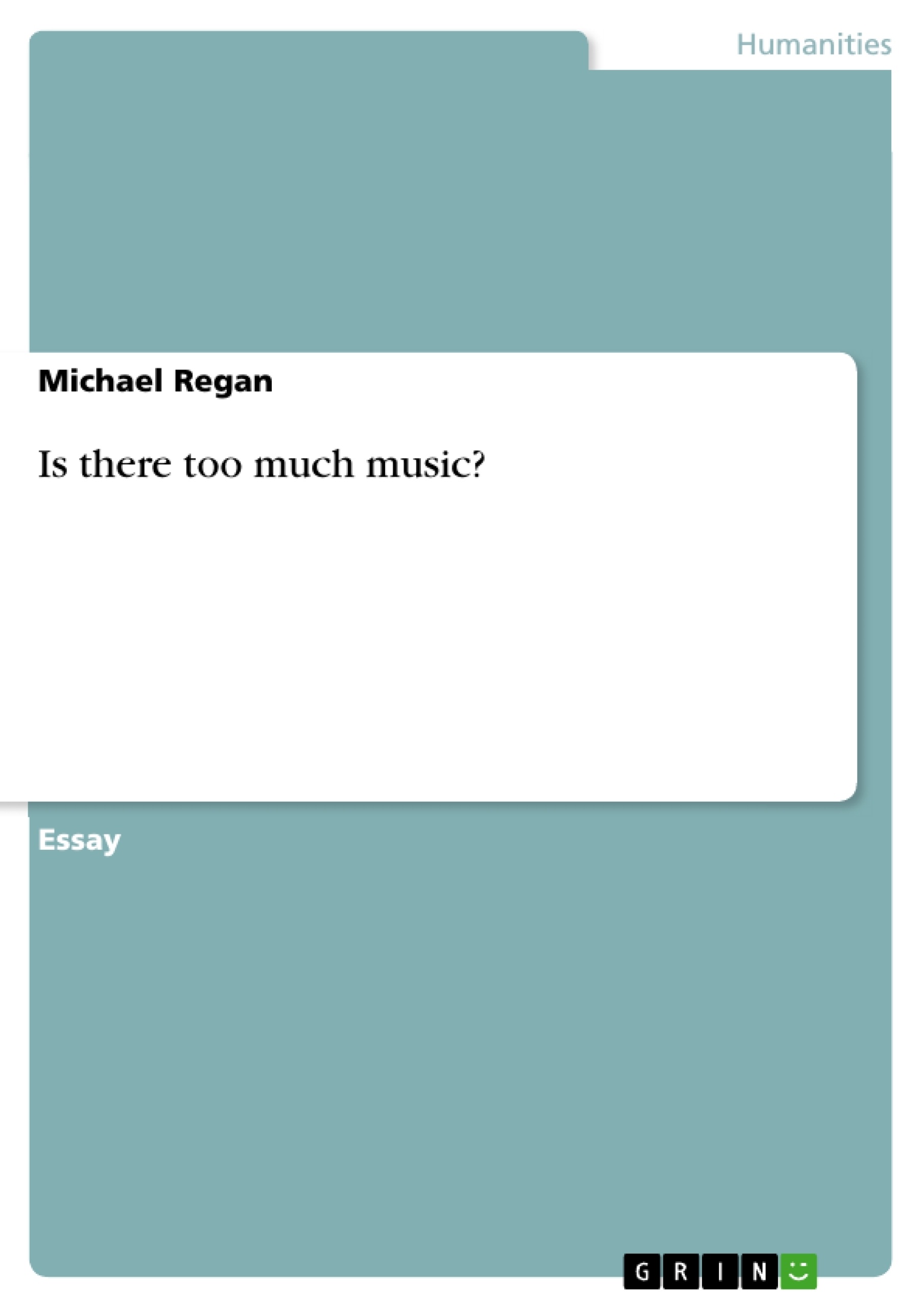Music, in all its multifarious styles and idioms, is everywhere, 24 hours a day. It never rests, and we can hear just about everything of significance ever composed, performed and improvised, at the touch of a button, on recordings and on the radio. If we live in or near a large town or city, we can attend a concert (or two) every day of our lives if we have the inclination. In this brief investigation into the effects of all this I will be concentrating on classical- or “serious” music, but the same points made here could be made of popular music, jazz and “world” music –they are all continuously available on the air, on disc, on line and in “live” performance.
Thus, regarding classical music, we may perceive several differing, and sometimes opposed effects of its proliferation and availability. On the positive side, we are now in the situation where we can get to know very much more than our predecessors. Next to nothing is now out of our reach, whether it be some obscure Medieval motet, a 19th century piano piece by a forgotten minor composer, or the very latest work by a composer living and working in say, Lithuania or some equally remote region. All the great masterpieces of the past five or more centuries are regularly performed, or failing that, recorded, often numerous times. Works of lesser stature by minor composers continue to be rescued from oblivion and given their chance on disc and in the concert hall. In addition to this a steady stream of new music by composers from all six inhabited continents is performed and recorded.
Table of Contents
- The Ubiquity of Music
- Is Music Special Anymore?
- The Divine Origins of Music
Objectives and Key Themes
This essay examines the impact of music's widespread availability on its value and our appreciation of it. It explores the implications of the constant presence of music in our lives, particularly focusing on classical music. The author questions whether the abundance of music diminishes its significance and whether we have lost a sense of its inherent value.
- The ubiquity of music in contemporary society
- The impact of music's abundance on its perceived value
- The challenges facing contemporary composers in a saturated musical landscape
- The significance of music's origins and its connection to the divine
- The misuse of music in commercial contexts and the need for responsible musical education
Chapter Summaries
- The Ubiquity of Music: This section discusses the constant presence of music in modern life, highlighting its accessibility through recordings, radio, and live performances. The author argues that while this accessibility benefits scholars and enthusiasts, it can be overwhelming for composers, making it difficult for them to create original and meaningful works.
- Is Music Special Anymore?: This chapter explores the idea that the abundance of music may have diminished its perceived value. The author contrasts the reverence given to music in earlier times with its casual and often commercialized use in modern society. He argues that the constant exposure to music can lead to a desensitization to its power and beauty.
- The Divine Origins of Music: This section examines the belief that music originated from divine intervention in ancient and primitive cultures. The author suggests that our modern world has largely forgotten this connection to the mystical origins of music, potentially diminishing our understanding of its profound impact on human experience.
Keywords
This essay explores the key themes of music's ubiquity, value, and its origins. It discusses the challenges of composing in a saturated musical landscape, the impact of music's commercialization, and the importance of responsible musical education. The essay emphasizes the significance of appreciating music for its own sake, rather than solely for its functional or commercial purposes.
Frequently Asked Questions
Does the constant availability of music diminish its value?
The essay argues that the ubiquity of music 24/7 can lead to desensitization, where music is treated as background noise rather than a special, revered experience.
How does music's abundance affect contemporary composers?
With almost every significant work ever composed available at a button's touch, it becomes increasingly difficult for new composers to create something original and meaningful.
What are the positive aspects of music's high accessibility?
Modern listeners can explore obscure medieval motets or forgotten 19th-century pieces that were previously out of reach for their predecessors.
What is the historical connection between music and the divine?
In many ancient and primitive cultures, music was believed to have mystical or divine origins, a connection the author feels is largely forgotten in the modern world.
Why is responsible musical education necessary?
To prevent the misuse of music in purely commercial contexts and to help people appreciate music for its intrinsic beauty rather than its functional purpose.
- Quote paper
- Michael Regan (Author), 2012, Is there too much music?, Munich, GRIN Verlag, https://www.grin.com/document/195266



